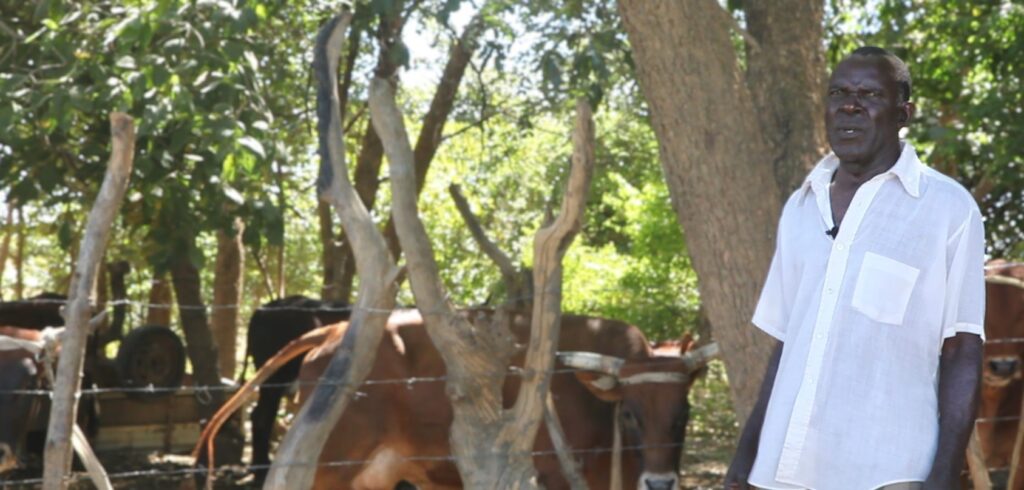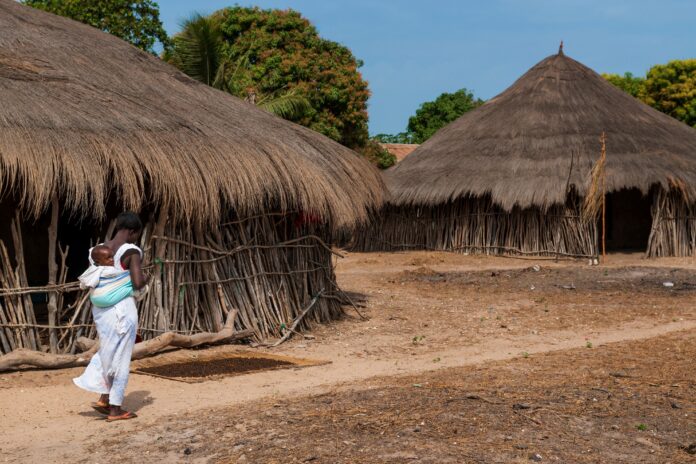By Newton Sibanda
In March this year, President Hakainde Hichilema declared the drought gripping the nation a national disaster and emergency. He announced a comprehensive set of interventions that the government will implement to mitigate its impact.
Hichilema stated that the declaration was prompted by the devastation of one million hectares of farmland, impacting over one million households nationwide.
He emphasised the urgency of the situation, highlighting the destruction of one million hectares of farmland affecting over one million households across 84 out of 116 districts.
“In view of these challenges, urgent and decisive action is required from all of us,” he said. “The government, in accordance with the Disaster Management Act No. 13 of 2010, and other relevant legislation declares the prolonged dry-spell a national disaster, and emergency.”
The prolonged dry spell, exacerbated by high temperatures, has ravaged approximately 2.2 million hectares of land, with one million hectares completely destroyed.
Farmers share harrowing testimonies of the drought’s toll
Webster Ntambo, a 35-year-old small-scale farmer from Ntambo Village in Chief Liteta’s area, Chibombo district, recounts a double tragedy of enduring hunger and falling victim to theft.
“Thieves broke into my house and stole maize and mealie meal,” said Ntambo, a father of two, who described the spate of thefts in his village as unprecedented. They steal anything, even chickens. This year’s drought has truly brought a plethora of issues,” he remarked.
Ntambo planted 10 kg of seed maize and mourns that he harvested nothing due to the drought.
https://www.youtube.com/watch?v=PIlbLmXXuIU
Her 47-year-old sister, Charity Ntambo, who also holds the position of headwoman in Ntambo Village, laments the inability to harvest crops and the surge in crime and societal vices, exacerbated by hunger.
“I have never witnessed such a devastating drought before. It is the worst I have ever experienced, where one cannot even harvest a single bag of maize,” Headwoman Ntambo expressed.
She planted 20kg of seed and applied eight bags of fertilizer, hoping for a yield of 100 x 50 kg bags of maize, but due to the drought, she harvested nothing.
“There is severe hunger here. People are striving to survive through gardening, but it has been extremely challenging,” Headwoman Ntambo observed.
In addition to the surge in crime, the hunger induced by the drought has led to other societal vices, posing a threat not only to the moral fabric of society but also to an increase in HIV/AIDS cases as women and girls resort to prostitution to obtain food.
“Prostitution among women has increased. Women are resorting to desperate measures, breaking up marriages due to hunger,” she explained. “They are unable to feed their children.”
Headwoman Ntambo highlighted that even young girls are turning to prostitution as hunger devastates households.
“We’re hearing about marriages breaking down frequently, and parents are struggling to control their daughters because of hunger at home. We are making efforts to address the situation, but it is proving to be challenging,” she concluded.
Victoria Chimfwembe Kaombe, a 72-year-old widow and small-scale farmer from Mwachilele village in Chief Liteta’s area, Chibombo district, shares the distressing reality of hunger amid the prolonged drought.
She planted 35 kg of maize seed, 10 kg of beans, and five kg of groundnuts, but unfortunately harvested nothing, resigning herself to fate.
“I entrust everything to God, who holds our lives. Normally, when I harvest 35 x 50kg bags of maize, I set aside 10 for food and sell the rest to sustain myself, but now I have nothing,” Mrs. Kaombe lamented in the local Bemba dialect.
She used to care for her three grandchildren, but due to her inability to feed them, they have been taken in by their parents, leaving her to endure a solitary existence.
Kaombe has relocated her chickens to safeguard them against increasing thefts in her village.
Her neighbour, Winford Kuyokwa, a 67-year-old retired school headteacher, echoes the dire consequences of the drought on agricultural yields and livestock welfare. Kuyokwa planted 40kg of seed maize, expecting a substantial harvest, but despite investing in seed, fertilizer, and weed killer, he yielded nothing.
“The drought’s impact is immense. The meagre yield has left many of us facing hunger,” he lamented.
Expert opinion
Martin Sishekanu, an agriculture and climate change expert, acknowledges the drought’s adverse effects on farming communities, citing a surge in thefts.
“In Munyense, Kapiri Mposhi, people are camping in their fields out of fear of maize crop theft,” Sishekanu reported. He highlighted that early planters achieved better yields but are now vulnerable to theft as most faced poor crop performance.
Sishekanu also highlighted the risk of increased livestock diseases due to water stress, as small-scale farmers may be compelled to relocate their animals to areas with adequate water, leading to overcrowding and challenges in disease management.
The prolonged drought, attributed to climate change, is pushing farming communities to the brink of destitution, as their coping mechanisms have been stretched to the limit.
Amidst looming food insecurity, particularly evident in the 84 districts declared food insecure, some small-scale farmers are resorting to drastic measures that exacerbate their impoverishment, such as selling livestock at significantly reduced prices.
This is driven in part by water stress and pasture depletion, factors that not only heighten the risk of livestock diseases but also intensify concerns about cattle theft.
“Cattle and goats are perishing due to the scarcity of water and pasture. Consequently, we’re compelled to sell at giveaway prices as buyers exploit the situation,” Kuyokwa added.

Headwoman Ntambo added: “Those with cattle are selling them cheaply to sustain their families, yet this action breeds further complications. However, if they refrain from selling, their livestock might succumb to disease or be targeted by thieves. I personally lost all eight of my cattle to Corridor disease.”
The impact
The drought has severely impacted eight of the country’s ten provinces, with Western, Southern, Central, and Lusaka provinces bearing the brunt.
Among the worst affected are small-scale farmers reliant on rain-fed agriculture, livestock herders, and individuals dependent on natural water sources.
Partners organisations’ response
In response to this crisis, the United Nations has allocated up to $5.5 million to support Zambia’s drought response efforts, focusing on delivering emergency food aid, clean water, healthcare services, and protection to affected communities, particularly women and children. Acting UN Resident Coordinator in Zambia, Penelope Campbell, expressed solidarity with the Zambian people and praised President Hichilema’s proactive measures.
Newton Vusa Sibanda Freelance Journalist/Media Consultant Lusaka, Zambia Mobile: +260 974 608501/966 452590 Skype ID: vusa.sibanda “A lion doesn’t concern himself with the opinions of sheep” – Tywin Lannister.
Main Photo | Headwoman Ntambo
Discover more from MAKANDAY
Subscribe to get the latest posts sent to your email.



